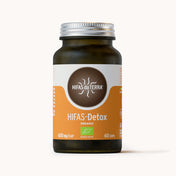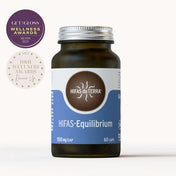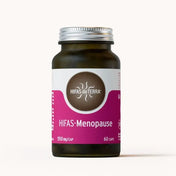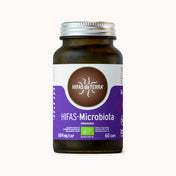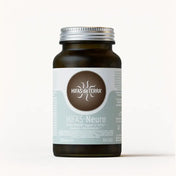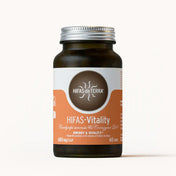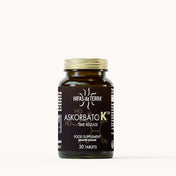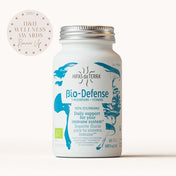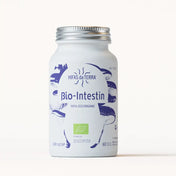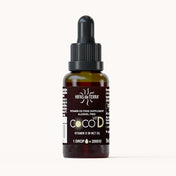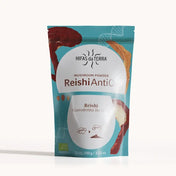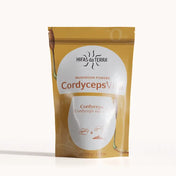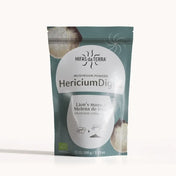Table of Contents
Holistic healthcare is gaining increasing prominence in medicine as a useful adjunct to conventional care. Typically, holistic health considers the entire person – body, mind, and spirit. A holistic approach to health goes beyond merely eliminating symptoms; instead, it emphasises preventative as well as healing approaches to promote overall wellbeing. Often, holistic healthcare is conflated with holistic medicine, which incorporates traditional and complementary approaches to treat illness. However, holistic healthcare can go further, expanding into many aspects of an individual’s lifestyle, such as holistic nutrition.

Historically, the term ‘holistic’ has carried many different connotations. ‘Holism’ has its origins in the Greek holos, meaning “whole”. In 1926, Jan Smuts revisited the term in his book Holism and Evolution <1>. Here, he argued that the specialisation of scientific disciplines has created a ‘silos mentality’, leading to a myopic approach to knowledge. Smuts used evolution as a case study to make the case for holism, but his thinking became a precursor for interdisciplinary, integrative approaches to healthcare and medicine.
As such, holism doesn’t seek to draw knowledge or approaches from one particular dogma, culture, or perspective. Instead, it aims to take a wider view. Today, practices like holistic nutrition and natural medicine draw knowledge from diverse cultural disciplines, including traditional Chinese medicine (TCM) and Ayurveda.
Ayurveda and TCM
Ayurveda and TCM, from slightly different lenses, both focus on restoring and promoting health and balance. According to Ayurvedic or TCM philosophy, health is not just the absence of disease, but the maintenance of a harmonious balance between physical, mental, emotional, spiritual, and environmental factors.
Nutrition, of course, plays an integral role in maintaining this equilibrium. Both these traditional medicines aim to promote optimal nutrition by recommending food groups and eating habits that work in harmony with the individual constitutional type to induce proper digestion and promote maximum absorption of essential nutrients. Certain foods and supplements can play an integral role in reaching this goal, including certain species of mushrooms. Here, we discuss the practice of holistic nutrition and why mushrooms are a vital part of this whole-system approach to health and wellbeing.
The Rising Acceptance of Holistic Health
Before introducing the concept of holistic nutrition, it’s useful to discuss why these methods are increasingly gaining mainstream acceptance. When healthcare professionals take into account all aspects of a patient – that is, their overall wellbeing as opposed to discrete complaints – patients feel better cared for. They cease to be a statistic or a symptom, and instead, are recognised as an individual with unique needs.

This is especially common in those numerous patients, particularly those with chronic conditions, who have spent a lot of time or money in conventional healthcare settings. After years of coping with the same ailments, many patients are seeking comprehensive (or indeed holistic) approaches to health and wellbeing. Equally, those using conventional medicine to treat serious conditions like cancer may use integrative methods to alleviate the side effects of medications or treatments.
Moreover, for patients with chronic conditions or in rehabilitation, these approaches have long-term benefits. Holistic nutrition and healthcare can prevent future disease or relapse by supporting harmony between mind, body, and spirit. This can be achieved via multiple strategies, from manual body-based therapies like massage, mind-body practices like yoga, energy practices like qi gong, and of course, adjustments to diet and nutrition.
The Principles of Holistic Nutrition
Holistic nutrition, like holistic medicine, considers the whole person in the design of healing or health-giving diets. Whereas conventional dieticians may outline plans based on symptoms, a practitioner of holistic nutrition will assess other factors that may be causing poor nutrition which may be leading or contributing to disease. A holistic nutrition approach analyses an individual’s physical, emotional and spiritual and environmental health to design a roadmap to recovery and long-term wellbeing, based on nutritional principles.
Holistic nutrition is currently not subject to licensing or certification by an official regulatory body. However, there is sufficient demand and emerging evidence to make the case for regulation, and if you are looking for a practitioner it is recommended to choose someone who has received official training and has professional credentials. Generally, good holistic nutritionists will work in collaboration with other healthcare providers to identify biochemical imbalances and toxicities that may be contributing to poor health.
For example, a holistic nutritionist will take into account a broad spectrum of the body’s chemical processes and how these are impacted by dietary choices. For example, it’s important to consider that when foods are treated with pesticides, fertilisers and/or hormones, these impact the body’s normal chemical processes. These substances can have a knock-on effect on other parts and functions of the body aside from the digestive tract, including brain functions. Subsequently, holistic nutritionists will normally recommend organic foods and supplements that restore chemical and hormonal balance to promote overall health.
This also works the other way; some hormones that are naturally produced in the gut have an impact on neurological health. For example, high levels of a satiety hormone could decrease a person’s likelihood of developing Alzheimer’s disease <2>. As such, dietary choices are connected to emotional, mental and neurological health, demonstrating the holistic understanding of the body as a whole integrated system.

Mushrooms as Part of Holistic Nutrition
Edible mushrooms have high nutritional value, more than any vegetable or fruit, and have been eaten for their flavour, economic and ecological benefits, and therapeutic properties for many years <3>.
The health-giving benefits of mushrooms have been prized by various cultures for millenia. The ancient Greeks believed that mushrooms built strength; the Romans called them the “food of the gods”, and ancient Chinese culture referred to them as the ‘elixir of life’. Throughout human history and cultures, their sensory characteristics and biological composition have made them popular medicinal and culinary ingredients.
Today, scientific research has demonstrated mushrooms’ nutritional value. Rich in fibre, antioxidants and proteins, mushrooms are a nourishing component of a balanced diet. Their protein content, in particular, is significant; with high levels of the essential amino acids as well as essential fatty acids. Their nutritional value is of great importance to the human diet. Additionally, they’re packed full of essential vitamins and minerals, including vitamins B1, B2, B12, C, D, and E <4>.
Huitlacoche
A good illustration of how nutrient-dense mushrooms are is huitlacoche, which is an edible fungus found on Mexican corn ears. The protein content of huitlacoche varies from 9.7% to 16.4%, which is far greater than that of maize (10%). As such, huitlacoche is an excellent protein source for those with vegetarian or vegan diets. Huitlacoche also contains almost every essential amino acid, including lysine, serine, glycine, aspartic and glutamic acid, as well as the fatty acids oleic and linoleic acid <5>.
Bioactive Substances
As well as having a high nutritional content, mushrooms also contain various bioactive substances. These compounds include triterpenes, natural sterols, omega 3 fatty acids and perhaps most famously, polysaccharides including β-glucans. They are also a source of other antimicrobial compounds; the secondary metabolites produced by digestion of mushroom fibre, which have various holistic benefits that contribute to broader health.
Mushroom bioactive polysaccharides and polysaccharide-protein complexes appear to enhance innate and cell-mediated immune responses. A wide range of these compounds have been reported to have immunotherapeutic properties, with studies showing they can even exhibit anti-tumour activity <5>. In Asia, particularly, several clinical trials have been conducted to assess mushroom’s immunomodulatory and anticarcinogenic activity.
E-book gratis
Do you want to know more about the benefits about medicinal mushrooms?
E-book 12 medicinal mushrooms
Agaricus blazei Murill
One such example is A. blazei, an edible mushroom native to Brazil that today is primarily cultivated in Japan. Commonly known as the sun mushroom or AbM, it is often consumed in food or prepared as tea due to its medicinal properties. Various studies have confirmed this mushroom has antimutagenic, anticarcinogenic, and immunomodulatory actions. In vitro studies have demonstrated that it also has remarkable antioxidant activity, demonstrating 62% to 87% suppression of powerful oxidants such as the superoxide anion radical, amongst other actions <6>. Furthermore, it has been reported that this mushroom downregulates lipid peroxidation in the liver.
Their rich nutritional and bioactive content makes many species of mushrooms an excellent basis for many different nutraceuticals, combining holistic nutrition and medicine. With this potential to promote health due to the synergies between mushrooms’ bioactive compounds, mushrooms should be considered a cornerstone of holistic nutrition. Alongside their high nutritional content, various species have demonstrated substantial benefits for patients.

A Whole-System Approach to Healthcare
Holistic nutrition recognises the complex interplay between physical, chemical, emotional and mental wellbeing, as well as the environmental factors that impact a patient’s life and physiology. Therefore, holistic nutrition professionals will approach diet and supplement recommendations from a whole-system perspective. Using nutritional education as their primary tool, holistic nutritionists highlight the importance of a bespoke approach, which takes into account each individual’s personal needs.
Considering their medicinal and bioactive properties, mushrooms address many of the goals of holistic nutrition, and thus, are a key tool. Several species of mushrooms have been identified as rich sources of bioactive compounds, as well as low-fat sources of vegan protein and amino acids. In fact, some species are so nutritionally beneficial that they would be a useful addition to be incorporated into the diet as a supplement in the form of whole food or a superfood powder.
However, many more benefits of mushrooms can be best obtained in the form of nutraceuticals. Through the extraction of active metabolites via sophisticated biotechnological methods, capsule and liquid formulations can deliver a high dose of these health-giving compounds for chronic conditions, protection of the immune system and increase nutritional intake for those on restrictive diets, among others. Holistic nutritionists should look for organic products backed by evidence to ensure quality.
As part of a balanced diet, whole mushrooms, mushroom powder and mushroom extracts can provide substantial benefits, with new research and evidence of these emerging all the time. Demand for holistic approaches is growing amongst patients, and allopathic doctors are increasingly embracing a multidisciplinary approach. To address this demand, holistic nutrition professionals would benefit from placing mushrooms at the centre of their whole system approach.
